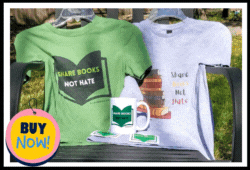Revision update: On chapter 22 of 30.
I’m taking a pause in my Houston SCBWI conference coverage for a little Olympics wisdom. Check back in tomorrow for National Geographic Children’s Books editor-in-chief Nancy Feresten.
We all know the Olympics are great for that ‘WOW! People can do that?’ factor. I must admit, I tear up when I see what some of these people do. We enjoy seeing the athletics of these individuals, how they tone and push their bodies to do amazing feats. And we think how great it must be to stand on that podium with a medal around our neck. We live high because of what they can do.
But how can they change our lives? Well, they can’t, but they can teach us some important lessons that can.
perseverance: The U.S. hasn’t beaten Canada in ice hockey since 1960, but the team just overturned that record with a winning 5-3 score. They’ve now gone through Switzerland and will be playing for a chance for a medal.
Writers often don’t hit gold off the bat. Some of the biggest writers went through multiple rejections before their books were published, and many writers weren’t published until after they had written a number of books. perseverance is key.
Passion: Slovenian cross-country skier Petra Majdic broke ribs during training but persevered and won the bronze.
Writing is full of setbacks (although less painful than broken ribs). Sometimes the ideas aren’t flowing, doubt has turned your thoughts negative, or a critique was less positive than you had hoped. For many writers, these can be crippling. There’s a statistic that says that something like only 5% of the people who start writing a book actually finish it, and of those 5% only about 1% continue the work of revising and polishing for submission. (The numbers might be slightly off, so don’t quote me, but it’s something close to this.) Passion is what pushes a writer through the dark times and back into the light.
Practice: As the youngest skaters to ever win a gold medal — at their first Winter Olympics, no less — Canadian figure-skating partners Tessa Virtue and Scott Moir appear to be an overnight success, but what they make look easy is far from it. Virtue and Moir have been skating together since she was 6 years old.
When we read our favorite books, we might think it was easy for the author, placing just the right word in just the right place to get just the right reaction from the reader. But we don’t see the hours and hours and drafts and drafts that writer went through to get that particular word in that particular place for that particular reader. They say, practice makes perfect, so…
Go for perfection, but enjoy your wins: For skier Bode Miller, being all he can be — being perfect — has been more important than medals, but when he scored a gold during this Winter Olympics, he was more than happy. Nobody’s perfect, but in our writing we should all strive to be as perfect as we can be. And when we reach something good, we should reward ourselves. Give yourself a gold medal next time you write a sentence, paragraph or scene you’re particularly proud of.
Funny, all these are P words. 🙂
What have the Olympics taught you as a writer?
Write On!



2 Responses
just came over here from the Carnival of Children’s Literature. So happy to have found your site. This is an excellent piece. I am going to share it with my critique group next week.
Thanks so much, Kathy B. I’m glad you liked it, and I hope your critique group gets something out of it to.